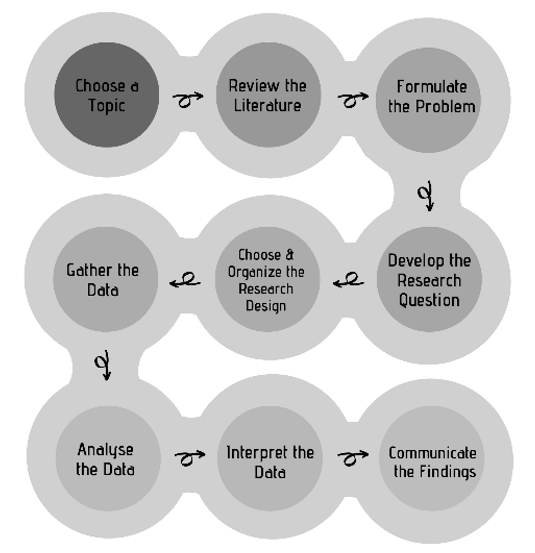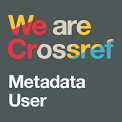Insertion of a Love-Based Curriculum in Multicultural Islamic Religious Education
DOI:
https://doi.org/10.51574/ijrer.v4i4.3745Keywords:
Islamic Religious Education, Love-Based Curriculum, Multiculturalism, Social Harmony, ToleranceAbstract
Islamic Religious Education in the contemporary era faces challenges in developing the character of students capable of living harmoniously in a multicultural society. This study examines the insertion of a love-based curriculum as an innovative solution in multicultural Islamic religious education. A love-based curriculum is an educational approach that integrates the values of compassion, tolerance, and empathy as the foundation of Islamic religious learning in the context of diversity. Through literature analysis and conceptual studies, this study explores the theoretical foundations, practical implementation, and potential impacts of a love-based curriculum. The results of the study indicate that a love-based curriculum can be a bridge connecting a profound understanding of religion with a tolerant attitude towards diversity. Its implementation requires transformations in learning approaches, teacher competencies, and a holistic evaluation system. This curriculum has the potential to produce a generation of Muslims with balanced spiritual, emotional, and social intelligence, capable of becoming agents of peace in a multicultural society. Implementation challenges include community resistance, limited resources, and the complexity of material development. However, great opportunities are open with the support of religious moderation policies and Indonesia's diversity as a natural laboratory. In conclusion, the insertion of a love-based curriculum in multicultural Islamic education is an urgent need to build a more peaceful and harmonious civilisation.
References
Aderibigbe, S. A., Idriz, M., Alzouebi, K., AlOthman, H., Hamdi, W. B., & Companioni, A. A. (2023). Fostering tolerance and respect for diversity through the fundamentals of Islamic education. Religions, 14(2), 212. https://doi.org/10.3390/rel14020212
Al-Said, K. (2023). Influence of teacher on student motivation: Opportunities to increase motivational factors during mobile learning. Education and Information Technologies, 28(10), 13439-13457. https://doi.org/10.1007/s10639-023-11720-w
Akrim, A. (2022). A new direction of Islamic education in Indonesia: Opportunities and challenges in the Industrial Revolution Era 4.0. Edukasi Islami: Jurnal Pendidikan Islam, 11(01), 35-48. https://doi.org/10.30868/ei.v11i01.1799
Alak, A. I. (2023). The islamic humanist hermeneutics: Definition, characteristics, and relevance. Islam and Christian–Muslim Relations, 34(4), 313-336. https://doi.org/10.1080/09596410.2023.2282842
Anas, M., Saraswati, D., Ikhsan, M. A., & Fiaji, N. A. (2025). Acceptance of" the Others" in religious tolerance: Policies and implementation strategies in the inclusive city of Salatiga Indonesia. Heliyon, 11(2). https://doi.org/10.1016/j.heliyon.2025.e41826
Aslinda, A., & Amrizon, A. (2025). Curriculum of Love and Religious Moderation in Madrasah Learning: Strategy for Building a Generation with Humanistic and Tolerant Character. Indonesian Journal of Teaching and Learning, 99-107. https://doi.org/10.56855/intel.v4i2.1477
Banks, J. A. (Ed.). (2021). Transforming multicultural education policy and practice: Expanding educational opportunity. Teachers College Press.
Basori, R., Zainuri, A., & Mahendra, A. (2025). Implementation And Management of A Love-Based Curriculum in Madrasah Ibtidaiyah of Palembang. Journal of Educational Sciences, 9(5), 3731-3743. https://doi.org/10.31258/jes.9.5.p.3731-3743
Cavas, B., & Cavas, P. (2020). Multiple intelligences theory—Howard Gardner. In Science education in theory and practice: An introductory guide to learning theory (pp. 405-418). Cham: Springer International Publishing.
Chang, C. W., & Chang, S. H. (2023). The impact of digital disruption: Influences of digital media and social networks on forming digital natives’ attitude. Sage Open, 13(3), 21582440231191741. https://doi.org/10.1177/21582440231191741
Demirel Ucan, A., & Wright, A. (2019). Improving the pedagogy of Islamic religious education through an application of critical religious education, variation theory and the learning study model. British Journal of Religious Education, 41(2), 202-217. https://doi.org/10.1080/01416200.2018.1484695
Erdiansyah, A. D., fitra Ritonga, A., Wismanto, W., & Mayasari, F. (2024). Kisah Hidup Nabi Muhammad: Teladan Bagi Umat Manusia. Jurnal Kajian dan Penelitian Umum, 2(6), 107-117. https://doi.org/10.47861/jkpu-nalanda.v2i6.1405
Feigenbaum, K. D. (2024). A critique of Abraham Maslow and Carl Rogers as educators. Journal of Humanistic Psychology, 64(1), 44-63.
Hosnan, H. (2022). Multicultural based inclusive Islamic education model in schools. Indonesian Journal of Education and Social Studies, 1(1), 40-50. https://ejournal.unuja.ac.id/index.php/IJESS/article/view/4286
Ifendi, M. (2025). Kurikulum Cinta: Membangun Paradigma Pendidikan Berbasis Kasih Sayang di Madrasah. As-Sulthan Journal of Education, 1(4), 698-711.
Kaminskienė, L., Järvelä, S., & Lehtinen, E. (2022). How does technology challenge teacher education?. International journal of educational technology in higher education, 19(1), 64. https://doi.org/10.1186/s41239-022-00375-1
Kanza, N. F. M., Muthohar, S., & Mursid, M. (2025). Strategi Guru Dalam Menumbuhkan Empati dan Kerja sama Anak Usia Dini. Aulad: Journal on Early Childhood, 8(2), 615-625.
Karimullah, S. S. (2023). The Concept of Love in Islamic Thought: Between Spirituality and Human Relations. Studi Multidisipliner: Jurnal Kajian Keislaman, 10(2), 17-38.
Kaur, H., Khant, M., Kistner, S., McHugh, D., Yu, W., Moraga-Prieto, C., ... & Lin, J. (2023). Toward eco-centric, earth-as-school, and love-based curriculum and learning: example of a graduate course. South African Journal of Higher Education, 37(5), 4-26. https://hdl.handle.net/10520/ejc-high_v37_n5_a2
Khalim, A. D. N., & Parut, W. (2025). Paradigma and Programs Multicultural Education in Inclusive Madrasah. Journal of Contemporary Islamic Education, 5(1), 28-44.
Kirschner, J. (2024). The Newest Generational Divide: Social Media Influence on Digital Natives. Visual Communication Quarterly, 31(3), 199-205. https://doi.org/10.1080/15551393.2024.2396791
Kozanitis, A., & Nenciovici, L. (2023). Effect of active learning versus traditional lecturing on the learning achievement of college students in humanities and social sciences: A meta-analysis. Higher Education, 86(6), 1377-1394.
Kozyreva, A., Lewandowsky, S., & Hertwig, R. (2020). Citizens versus the internet: Confronting digital challenges with cognitive tools. Psychological Science in the Public Interest, 21(3), 103-156. https://doi.org/10.1177/1529100620946707
Kumari, S. (2024). Humanism in education: Fostering student-centered learning through maslow's and rogers' theories. Journal homepage: www. ijrpr. com ISSN, 2582, 7421.
Labibuddin, M. (2022). Konsep cinta kepada sesama manusia dalam tafsir khaw A thirI Hawl al-qur’a ̅n Al-Karim karya Syaikh Mutawalli Asy-Sya ‘Rawi (Doctoral dissertation, UIN Mataram).
Lestari, A., Salminawati, S., & Usiono, U. (2023). The Multicultural Education in the Perspective of Islamic Education Philosophy. Bulletin of Science Education, 3(3), 320-329. https://attractivejournal.com/index.php/bse/article/view/915
Machwate, S., Bendaoud, R., Henze, J., Berrada, K., & Burgos, D. (2021). Virtual exchange to develop cultural, language, and digital competencies. Sustainability, 13(11), 5926. https://doi.org/10.3390/su13115926
Mahadjani, M., Yahiji, K., Ibrahim, S., & Usman, R. T. (2025). Konsep Pendidikan Tauhid, Moral, Dan Rohani Menurut Al-Qur'an. Inovasi Pendidikan Nusantara, 6(2).
Malihah, E. (2015). An ideal Indonesian in an increasingly competitive world: Personal character and values required to realise a projected 2045 ‘Golden Indonesia’. Citizenship, Social and Economics Education, 14(2), 148-156. https://doi.org/10.1177/2047173415597143
Mardiah, M., & Napratilora, M. (2021). Konsep Pendidikan Karakter Dalam Al-Qur'an Dan Hadits. Al-Liqo: Jurnal Pendidikan Islam, 6(2), 108-130.
Mezirow, J. (2018). Transformative learning theory. In Contemporary theories of learning (pp. 114-128). Routledge.
Muhsyanur, M. (2024). Love-Based Curriculum as a New Paradigm in Language Education: Between Cognition, Affection, and Spirituality. TRICKS: Journal Of Education And Learning Practices, 2(5), 12-19. https://journal.echaprogres.or.id/index.php/tricks/article/view/20
Musyadad, V. F., & Sari, I. (2024). Analisis Implementasi Penilaian Berbasis Portofolio Terhadap Perkembangan Kognitif Siswa. Jurnal Primary Edu, 2(1), 44-59.
Musyawir, A. W., Dzulhakim, D., Andini, F., Ashari, N. F., Hairunnisa, H., Zikrullah, Z., & Herianto, E. (2024). Peran Kurikulum Berbasis Karakter Dalam Mendorong Perkembangan Moral Siswa Sekolah Menengah Pertama. LEARNING: Jurnal Inovasi Penelitian Pendidikan Dan Pembelajaran, 4(3), 542-551.
Nasidi, Q. Y., Hassan, I., Ahmad, M. F., & Saminu, I. (2025). Digitisation and information dissemination: Evaluating the effect of information spread on national conflict in Nigeria. Information Development, 02666669251358479. https://doi.org/10.1080/10350330.2022.2157171
Nugroho, M. A. (2019). Embedding multicultural values in Islamic education: A portrayal of contemporary Indonesian textbooks. Edukasia Islamika, 4(2), 226-242.
Petrelli, H. M. (2018). Academic motivation: For the love of learning. In Handbook of research on program development and assessment methodologies in K-20 education (pp. 443-477). IGI Global.
Piraino, F. (2023). ‘Islamic humanism’: another form of universalism in contemporary Sufism. Religion, 53(2), 246-268. https://doi.org/10.1080/0048721X.2022.2130836
Putri, N. H., Yusuf, A., Prayuga, N. G. A. P., & Syafira, N. P. (2024). Learning theory according to humanistic psychology and its implementation in students. Progres Pendidikan, 5(1), 64-70.
Raihani, R. (2018). Education for multicultural citizens in Indonesia: policies and practices. Compare: A Journal of Comparative and International Education, 48(6), 992-1009. https://doi.org/10.1080/03057925.2017.1399250
Rohaeni, A. (2024). Nilai-Nilai Pendidikan Al-Qur’an dalam Pembentukan Karakter Islami. JURNAL SYNTAX IMPERATIF: Jurnal Ilmu Sosial Dan Pendidikan, 5(5), 1027-1033.
Rumina, R. (2017). Islam Sebagai Paradigma Pendidikan Moral Universal. Nidhomul Haq: Jurnal Manajemen Pendidikan Islam, 2(3), 114-124. https://doi.org/10.31538/ndh.v2i3.28
Rusticus, S. A., Pashootan, T., & Mah, A. (2023). What are the key elements of a positive learning environment? Perspectives from students and faculty. Learning environments research, 26(1), 161-175.
Saada, N., & Magadlah, H. (2021). The meanings and possible implications of critical Islamic religious education. British Journal of Religious Education, 43(2), 206-217. https://doi.org/10.1080/01416200.2020.1785844
Sahin, A. (2018). Critical issues in Islamic education studies: Rethinking Islamic and Western liberal secular values of education. Religions, 9(11), 335. https://doi.org/10.3390/rel9110335
Samala, A. D., Rawas, S., Criollo-C, S., Bondarenko, O., Samala, A. G., & Novaliendry, D. (2024). Harmony in Education: An In-Depth Exploration of Indonesian Academic Landscape, Challenges, and Prospects Towards the Golden Generation 2045 Vision. TEM Journal, 13(3).
Sari, I. K. S. I. P. (2017). Analisis karakter nasionalisme pada buku teks kurikulum 2013 edisi revisi 2016 kelas I SD. Elementary School: Jurnal Pendidikan Dan Pembelajaran Ke-Sd-An, 4(2). https://es.upy.ac.id/index.php/es/article/view/174
Shohib, M., Al Masithoh, S., & Al-Ghifari, F. H. (2024). Ukhuwah Islamiyah dan Interaksi Harmonis Antarumat Beragama di Indonesia: Kajian Tafsir Ayat-Ayat Ukhuwah dalam Al-Qur’an. Al Furqan: Jurnal Ilmu Al Quran Dan Tafsir, 7(2), 493-512. https://doi.org/10.58518/alfurqon.v7i2.2934
Skantz-Åberg, E., Lantz-Andersson, A., Lundin, M., & Williams, P. (2022). Teachers’ professional digital competence: An overview of conceptualisations in the literature. Cogent Education, 9(1), 2063224. https://doi.org/10.1080/2331186X.2022.2063224
Stančić, M. (2021). Peer assessment as a learning and self-assessment tool: a look inside the black box. Assessment & Evaluation in Higher Education, 46(6), 852-864. https://doi.org/10.1080/02602938.2020.1828267
Southworth, J. (2022). Bridging critical thinking and transformative learning: The role of perspective-taking. Theory and Research in Education, 20(1), 44-63.
Sulhadi, A., & Firdaus, Z. (2020). Cinta Dalam Al-Qur’ An: Sebuah Kajian Tafsir Tematik. SAMAWAT: Journal Of Hadith and Qur'anic Studies, 4(2).
Suryani, A., & Muslim, A. B. (2024). Religious tolerance at school and democratic education. In Embracing Diversity: Preparing Future Teachers to Foster Religious Tolerance (pp. 81-99). Singapore: Springer Nature Singapore. https://doi.org/10.1007/978-981-97-1616-6_5
Syarifah, S. (2019). Howard Gardner’s concept of multiple intelligence. SUSTAINABLE: Journal of Education Quality Studies, 2(2), 176-197.
Trifonova, I. S., Tokarev, A. A., & Levenkova, A. Y. (2023). Creating a supportive learning environment: The impact of dominant love styles on students’ motivation. Science for Education Today, 13(5), 31-50.
Trolian, T. L., & Parker III, E. T. (2022). Shaping students’ attitudes toward diversity: Do faculty practices and interactions with students matter?. Research in Higher Education, 63(5), 849-870.
Walsh, J. P. (2020). Social media and moral panics: Assessing the effects of technological change on societal reaction. International Journal of Cultural Studies, 23(6), 840-859. https://doi.org/10.1177/1367877920912257
Wanner, T., & Palmer, E. (2018). Formative self-and peer assessment for improved student learning: the crucial factors of design, teacher participation and feedback. Assessment & Evaluation in Higher Education, 43(7), 1032-1047. https://doi.org/10.1080/02602938.2018.1427698

Downloads
Published
How to Cite
Issue
Section
License
Copyright (c) 2025 Harling Danil, Baso Syafaruddin, Muh Sarda

This work is licensed under a Creative Commons Attribution-ShareAlike 4.0 International License.









1.png)













